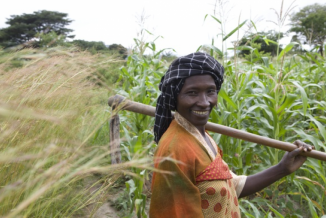From the perspective of our ranking criteria – impact, innovation and sustainability – BRAC ticks every box. While still involved in the microfinance space – to the tune of approximately $9 billion – the organization has carefully, but steadily, diversified into a wide suite of activities, from agriculture and food security to education, legal aid, climate change risk reduction, livelihoods support and maternal and child health. Rather than spreading BRAC’s resources too thin, this strategy has instead remained faithful to founder Sir Fazle Hasan Abed’s vision of a holistic, sustainable approach to poverty reduction. Indeed, BRAC is in a unique position to use its microfinance base as a social platform to deliver innovative scaled up services aligned to a principled, rights-based philosophy.
As we noted last year, BRAC is in many ways a microcosm of the entire international development sector in one organization, albeit gaining in independence from donor influence each year as it covers almost 80 percent of its $572 million operating budget through a burgeoning portfolio of catalytic social enterprises – a clear trend positioning the organization in an enviable position of financial and programmatic sustainability. Yet rather than taking this as a cue to rest on its laurels, BRAC has at the same time used its considerable resources and in-house human capital to build an expansive and dedicated monitoring and evaluation apparatus, with positive flow on effects for the entire sector.
Ultimately, BRAC has evolved into a giant of an NGO in a way that some could see as problematic – a non-public entity that touches the lives of more than 126 million people. Reassuringly, however, while size is not often an indication of quality, BRAC represents a welcome outlier and a continuing force for good at the global level.
(Presented by http://theglobaljournal.net/group/top-100-ngos/)

